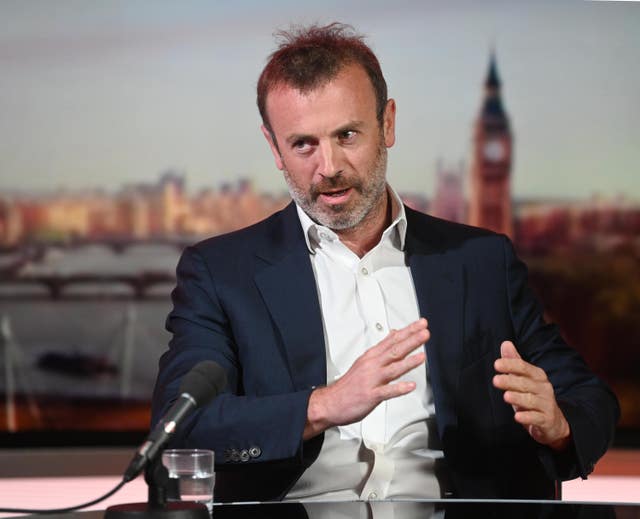
Tom Swarbrick 4pm - 6pm
27 December 2021, 20:04

The Business Secretary met with energy bosses on Monday to discuss the impact of rising global wholesale gas costs on household bills.
The Business Secretary and energy companies agreed on the need to “ensure UK customers are protected” when they met to discuss how to deal with soaring gas and electricity prices, according to the Government.
The meeting with Kwasi Kwarteng on Monday came after Labour and a boss of a major energy provider called on the Government to step in over fears of runaway household bills in the new year.
Worries have been mounting since rising gas prices began bankrupting suppliers in September, but since then prices have risen from 54p per therm of gas to £4.50.
A Government spokeswoman said: “Today a meeting was held between the Business and Energy Secretary, representatives from large energy suppliers and Ofgem to discuss the ongoing effects of record high global gas prices on the sector.
“Throughout the meeting there was discussion of the issues facing the sector and an agreement for meetings to continue over the coming days and weeks to ensure UK consumers are protected.”
Shadow chancellor Rachel Reeves has called for the Government to help consumers as Labour said new figures from the House of Commons Library showed that rising energy, food and other bills meant the Treasury is expected to have an extra £3.1 billion in VAT receipts in 2021/22.
The opposition party is proposing that the Government uses those higher-than-expected receipts to remove VAT on domestic gas and electricity bills completely through the winter months to help ease the burden on household bills.
Ms Reeves said: “Right now, people are being hit by a cost-of-living crisis which has seen energy bills soar, food costs increase and the weekly budget stretched.
“That’s why Labour is calling on Government to immediately remove VAT on household heating bills over the winter months.
“We need a sustainable and ambitious approach to energy, which is why Labour would also ramp up ambition with our plan to retrofit 19 million homes, making our energy supply chain more secure without hitting household savings.
“On top of the biggest tax burden in 70 years, Conservative complacency is making the cost-of-living crisis worse and storing up long-term problems, with working people paying the price.”
The suggestion comes as Ovo chief executive Stephen Fitzpatrick told the BBC the impact of soaring wholesale gas prices will be “an enormous crisis for 2022”, with it “almost certain” that energy bills will double from last year to £2,000 per household.
Mr Fitzpatrick told BBC Radio 4’s Today programme: “Expecting consumers to shoulder that kind of volatility without any kind of support from Government is just unrealistic.
“It is a £25 billion hit to consumer spending next year and if this was any other kind of economic shock, we know that the Government would be stepping in.”

He also told BBC Breakfast: “We’ve seen this energy crisis unfold now for the last three months and we’ve watched as energy prices have spiked, fallen back, and spiked again.
“We’ve had more than 30 bankruptcies in the sector, we’ve had millions of customers forced to change supplier.
“The cost to the consumer has already been more than £4 billion.
“We haven’t seen any action from the Government or from the regulator. There’s an acceptance that there’s a problem, but nowhere near enough urgency to find a solution.”
A Government spokesman, responding to Labour’s VAT cut suggestion, said: “VAT receipts this year are forecast to be below the pre-Covid level, with the OBR (Office for Budget Responsibility) forecasting nearly £2 billion less will be received this year compared with directly before the pandemic.”
He added: “We are supporting vulnerable households with the cost of energy through initiatives such as the warm home discount – which is being increased to £150 and extended to cover an extra 750,000 households – winter fuel payments, and cold weather payments.”